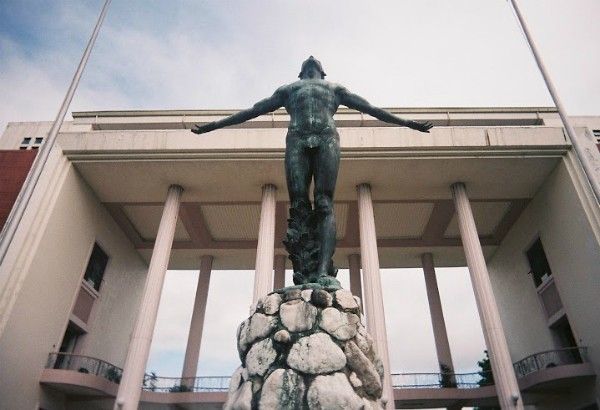UP Diliman execs condemn removal of 'subversive' readings from libraries

MANILA, Philippines — Officials of the University of the Philippines – Diliman condemned Saturday the removal of supposedly subversive materials from some state university libraries, calling it a “clear example of censorship” and a “slaughter of knowledge.”
“Ang pagtatanggal na ito ay sumasalungat sa misyon ng mga pamantasan na makapagturo at makapagsaliksik nang malaya, at magpalaganap ng academic freedom. Dapat nating protektahan ang ating mga eskuwelahan at panatiliin ang mga ito bilang lugar ng malayang pag-iisip,” the UP Diliman Office of the Chancellor Executive Staff said in a statement.
(The removal of these materials runs counter to the mission of universities to teach and research freely and propagate academic freedom. We need to protect our schools and maintain them as places of free thinking.)
In September, Kalinga State University in Tabuk City, Isabela State University in Isabela City and Aklan State University in Banga pulled out materials related to the peace negotiations between the Philippine government and the National Democratic Front (NDF) as well as other “subversive” materials from their libraries, according to rights monitor Karapatan.
The documents were then turned over either to the military, the regional anti-communist task force or the National Intelligence Coordinating Agency.
Last week, the Commission on Higher Education in the Cordillera Administrative Region urged higher educational institutions in the region to remove materials "that contain pervasive ideologies of the Communist-Terrorist Groups (CTGs)" from their libraries.
CTG is what the government calls communist rebels belonging to the Communist Party of the Philippines, its armed wing the New People’s Army, and the NDF, which represents them in peace talks with the government.
“It is our moral consciousness not to allow our youth to be engrained with peace-detrimental ideologies that could turn them as subversive and become communist-terrorist,” the CHED-CAR memorandum read, as quoted by Rappler.
But UP Diliman officials said that if protecting the youth is the goal, this cannot happen if the government would limit what they read.
“Sa halip ay nararapat natin silang hikayating buksan ang kanilang isipan. Hayaan natin silang magtanong at bumuo ng kanilang mga sariling konklusyon,” they said.
(Instead, it is better for us to encourage them to open their minds. Let us allow them to ask questions and form their own conclusions.)
They added that removing books, pamphlets and documents which go against people’s beliefs might suggest that they are afraid of ideas and that they are going against the essence of a university where free thought, discussion and information dissemination reign.
“Kung patuloy na gagawin ang pagtatanggal ng mga piling materyales mula sa mga aklatan, humuhubog lamang tayo ng mga estudyanteng mangmang, hindi bukás sa kritisismo, at takot magtanong at manindigan,” they said.
(If the removal of select materials from libraries continues, we are just forming students who are ignorant, not open to criticism and afraid to ask questions and take a stand.)
The Office of the Chancellor Executive Staff is composed of Chancellor Fidel Nemenzo, vice chancellors, the UP registrar and the director of the UP Diliman Information Office. — Xave Gregorio
- Latest
- Trending































